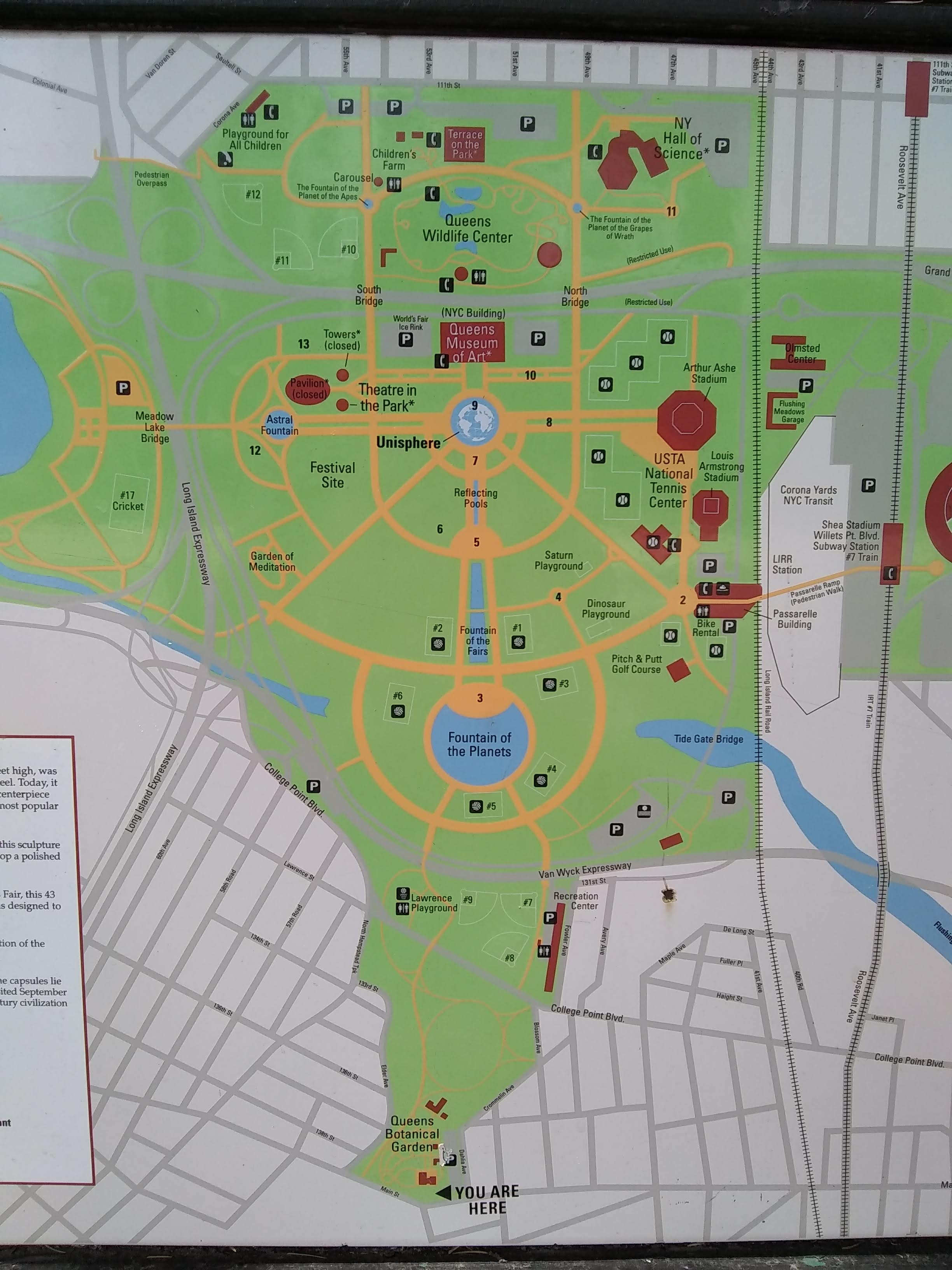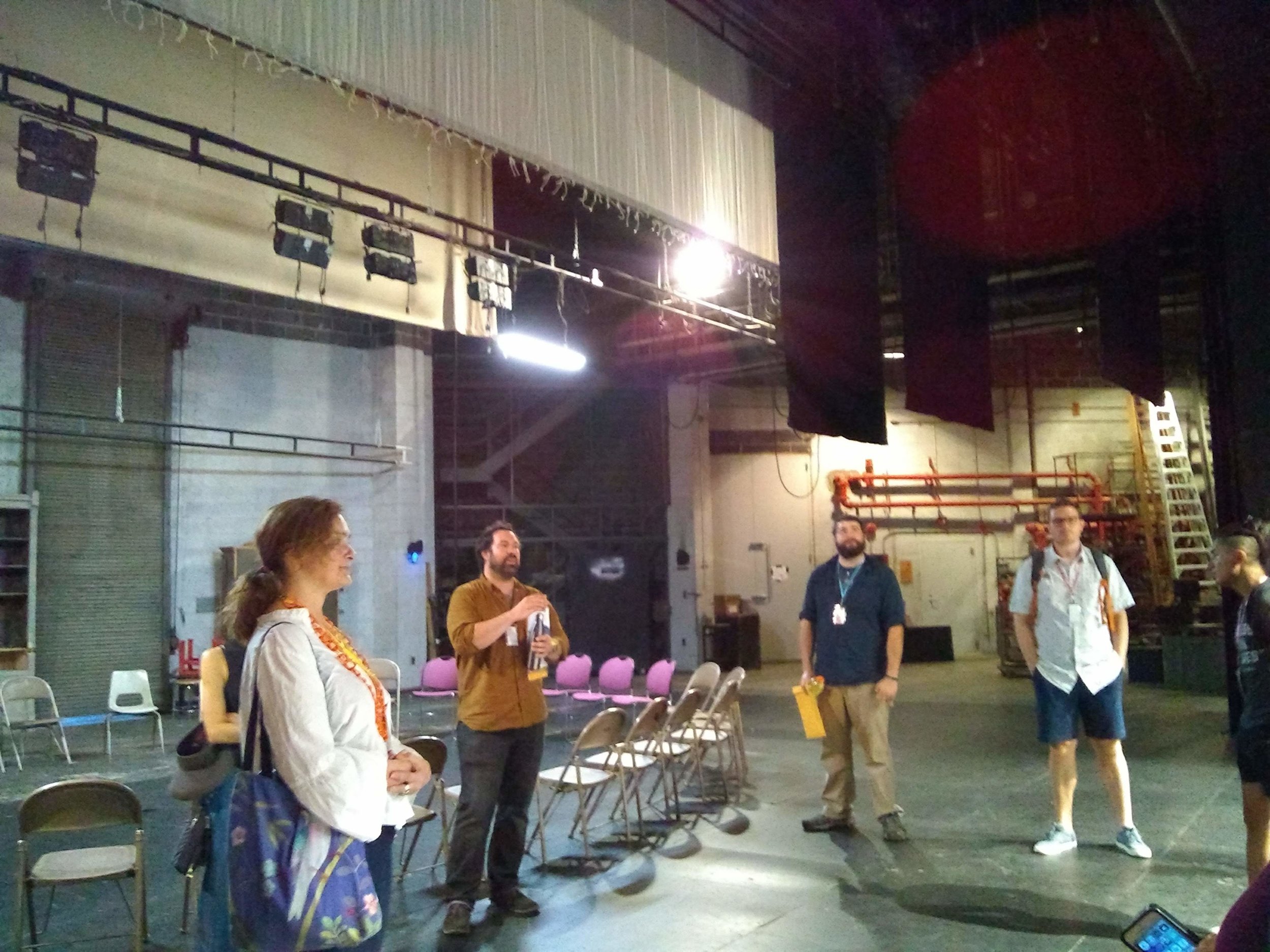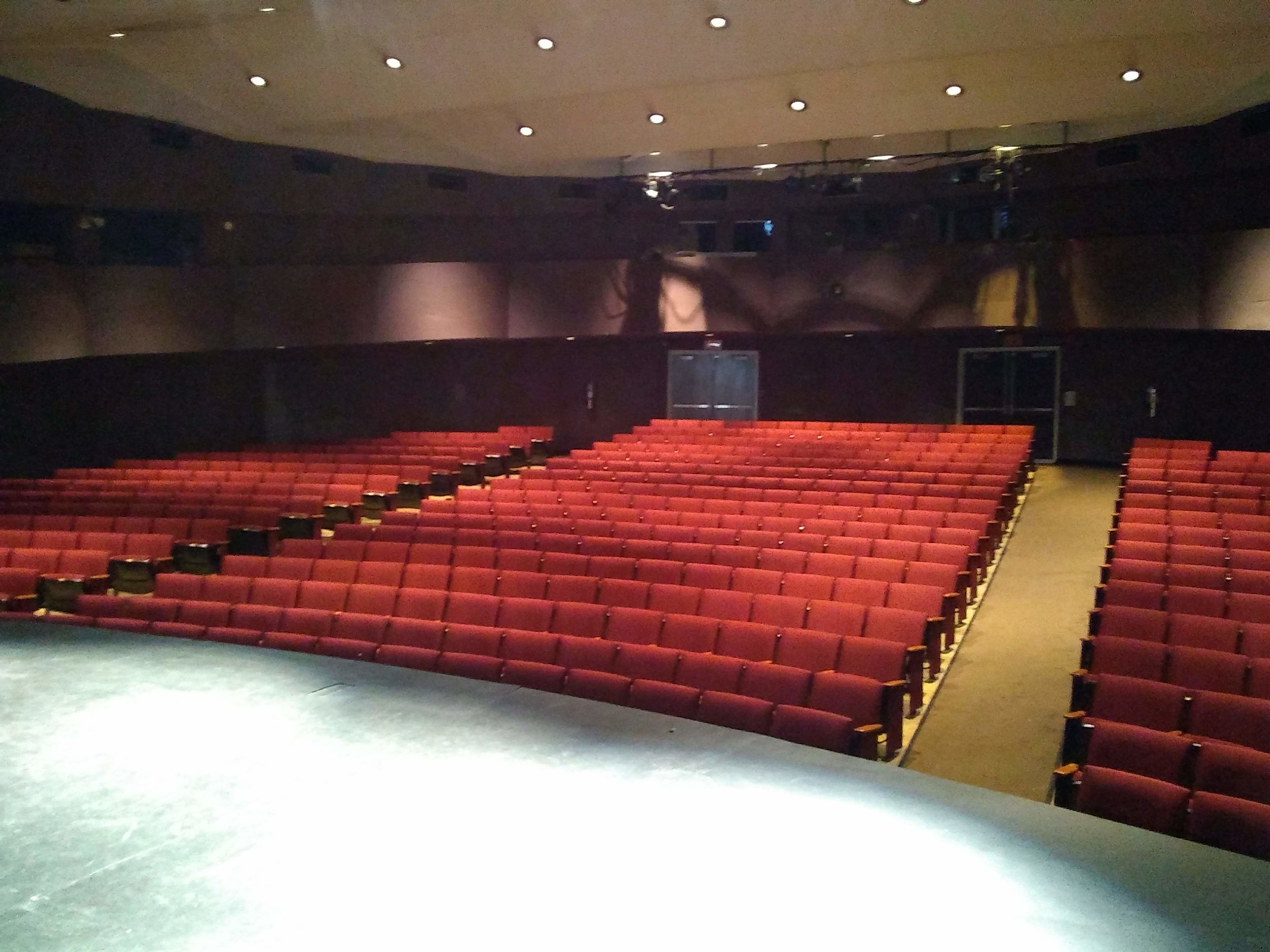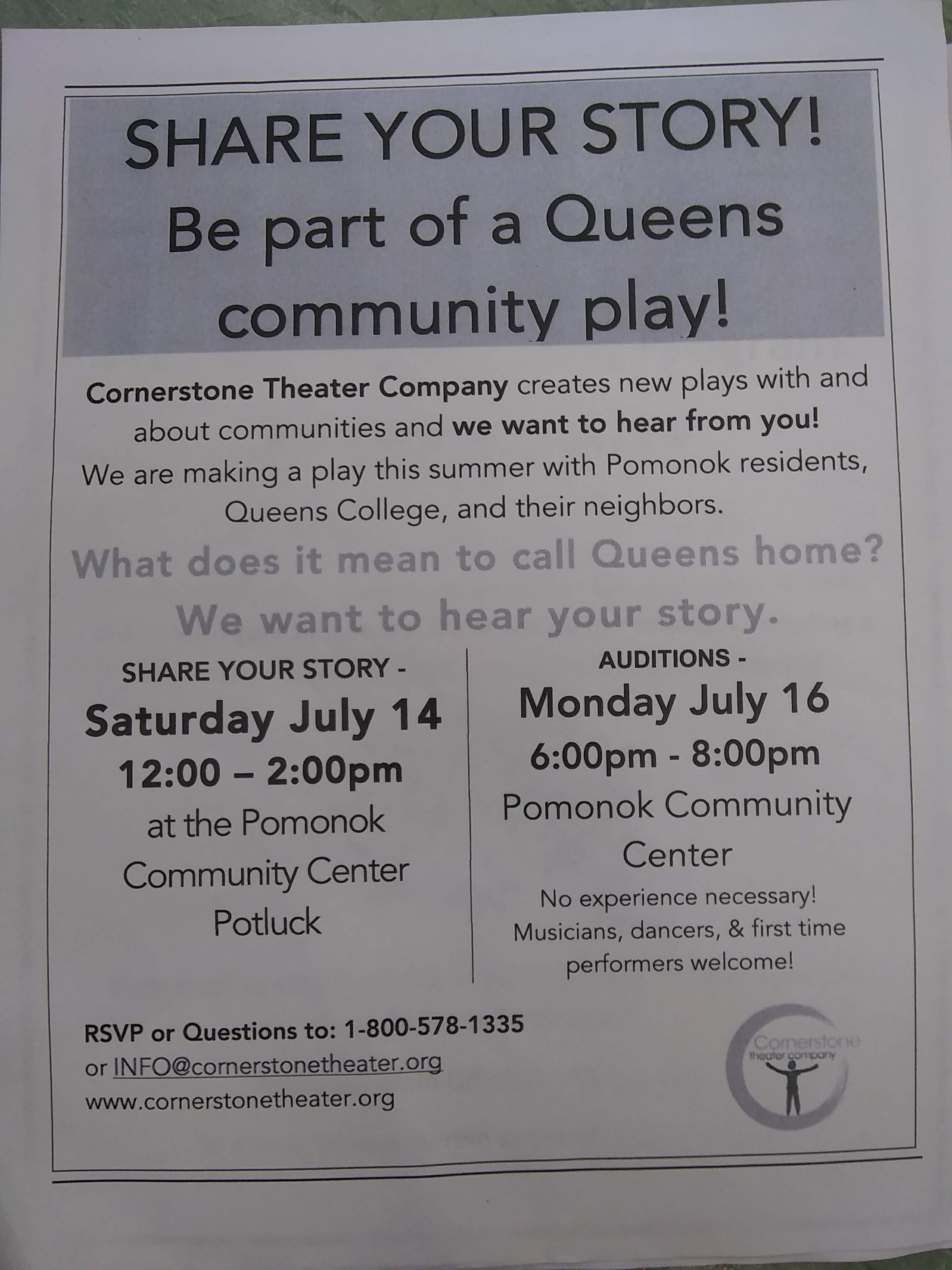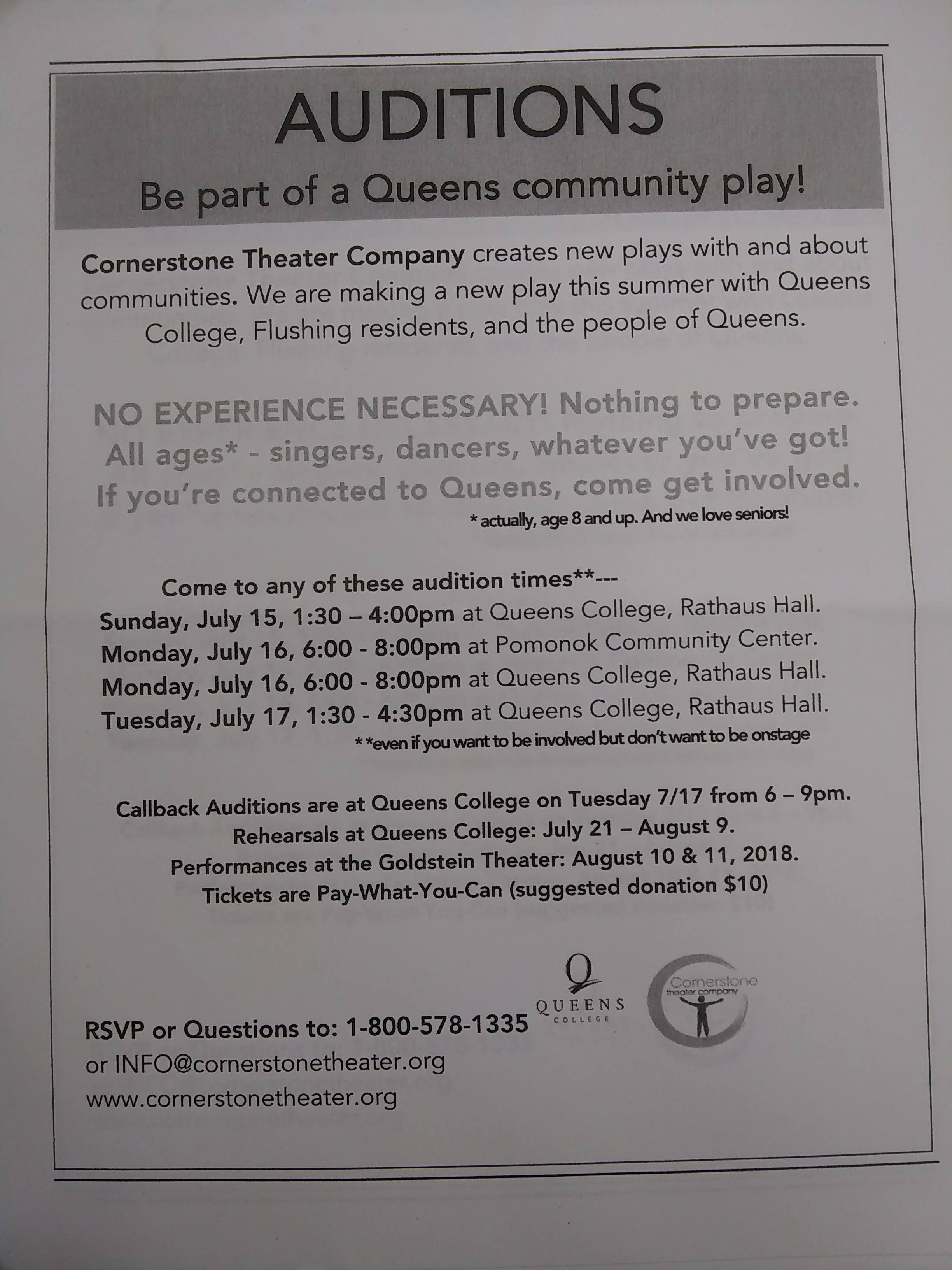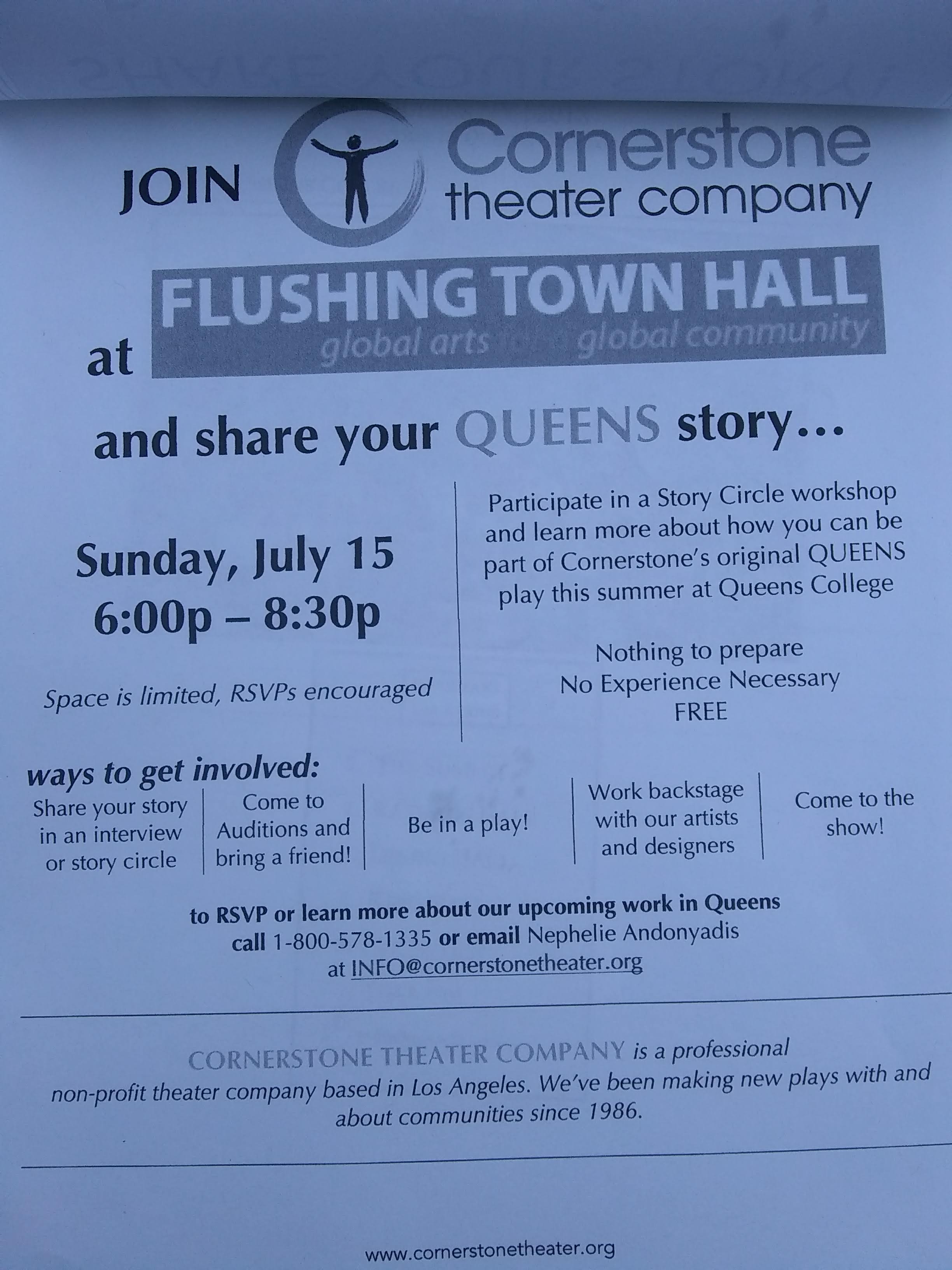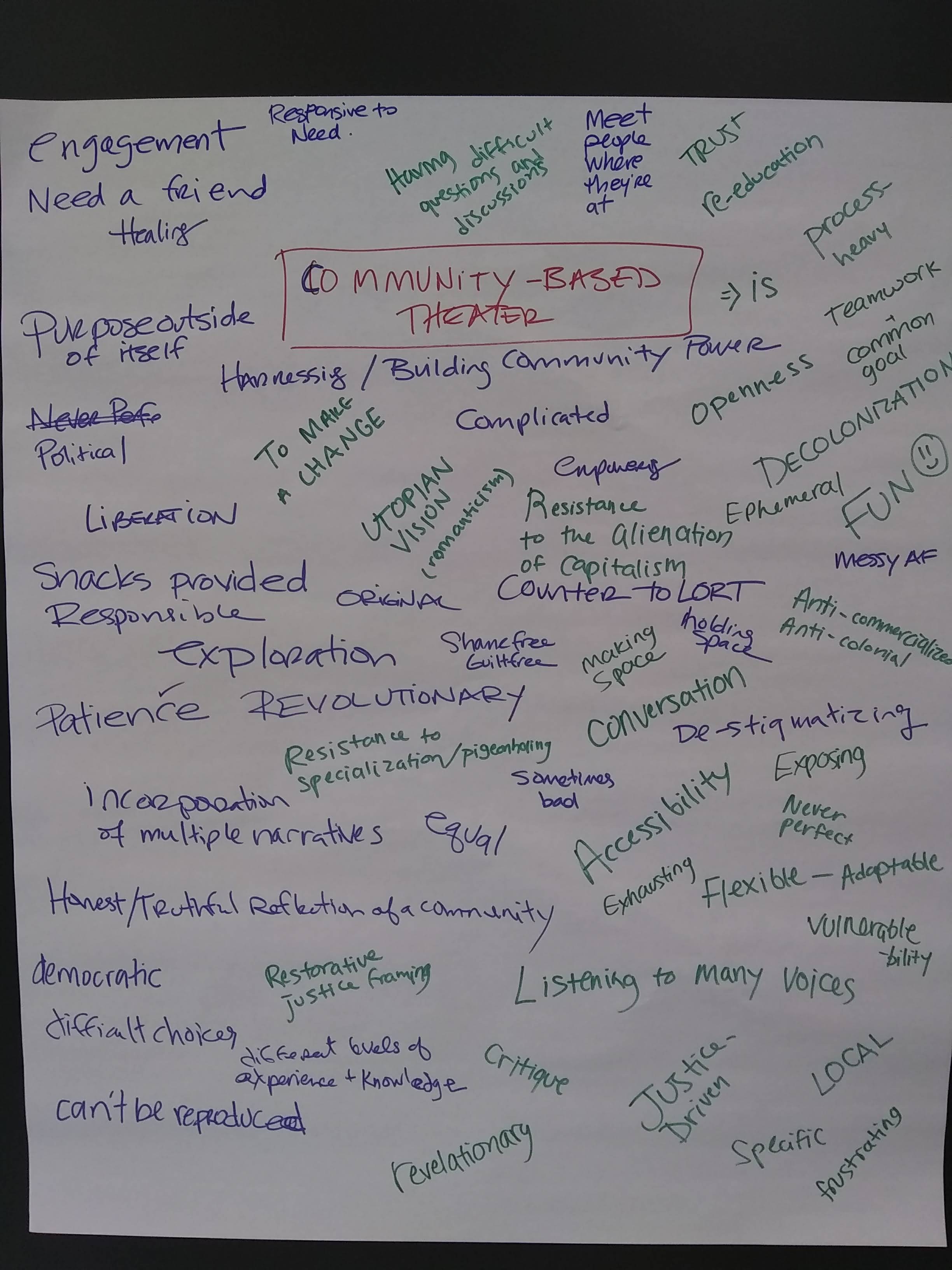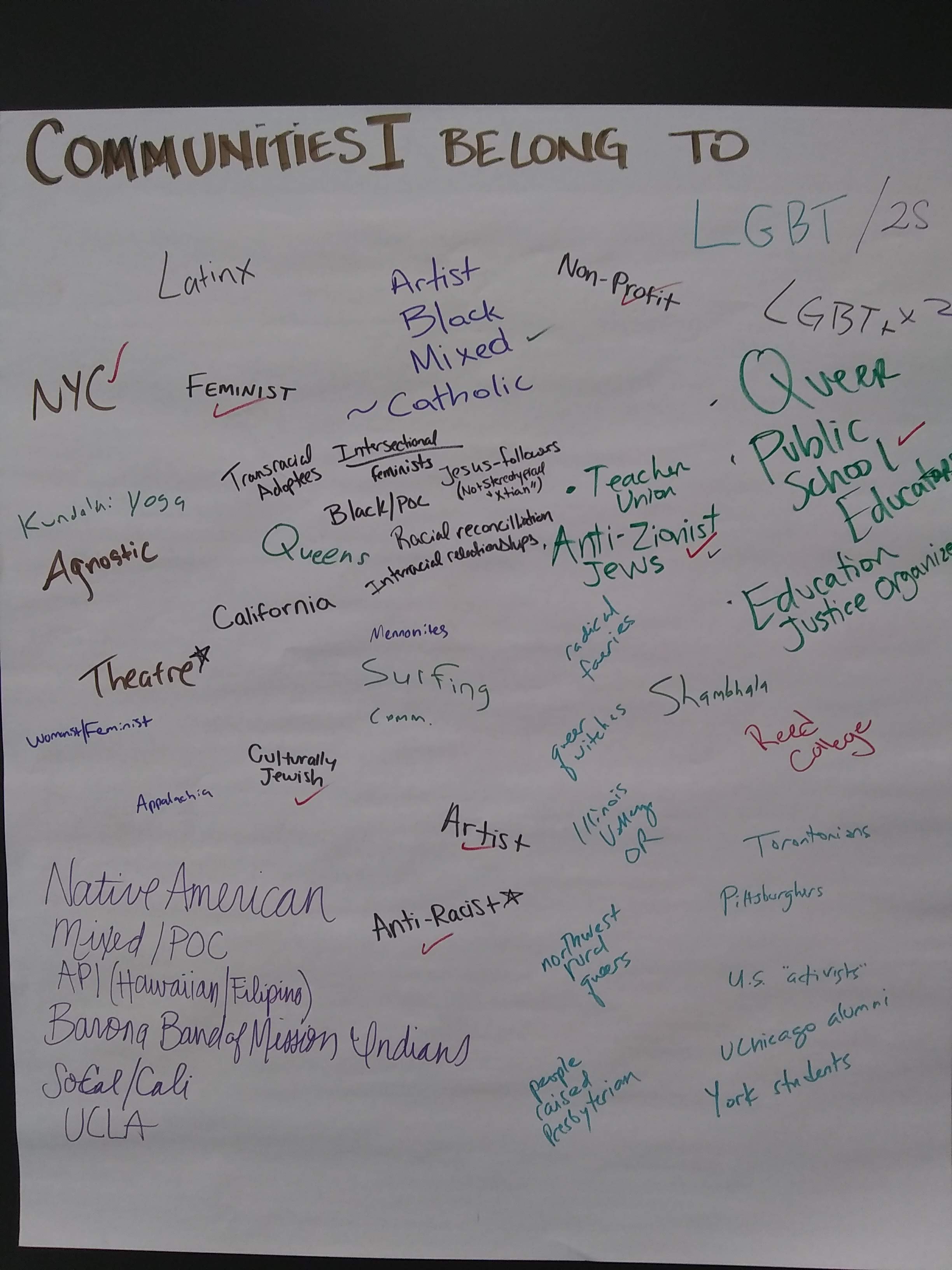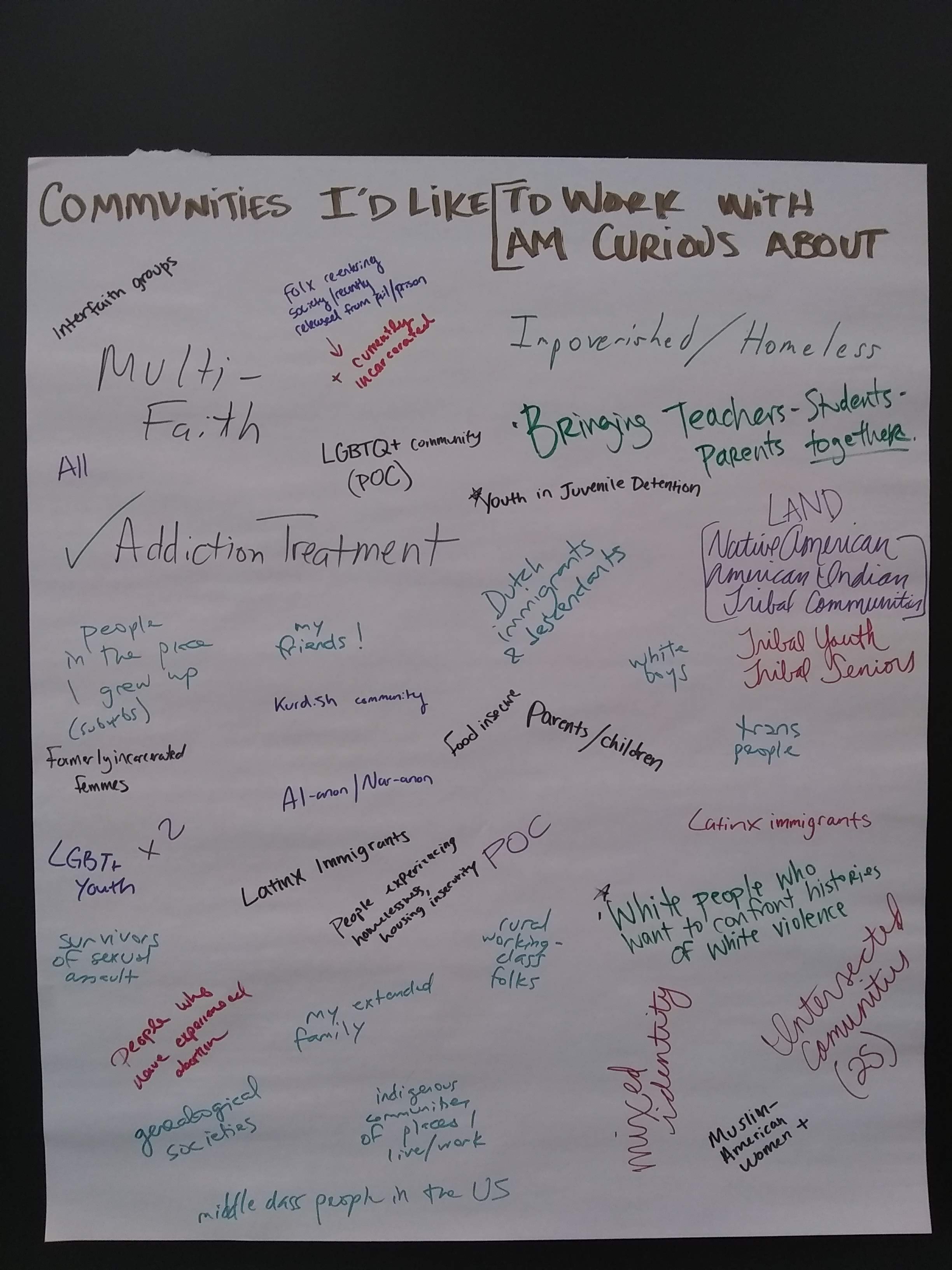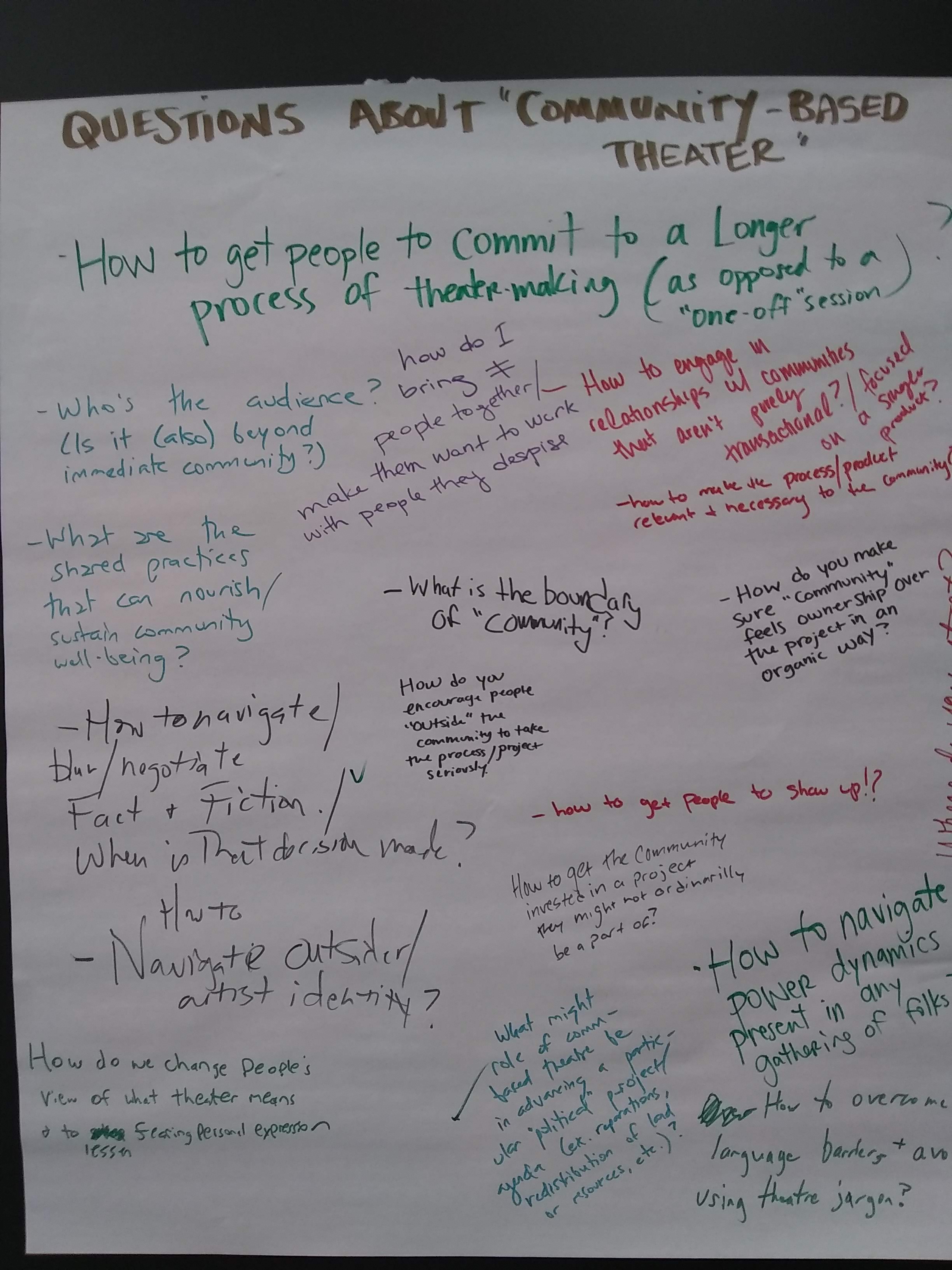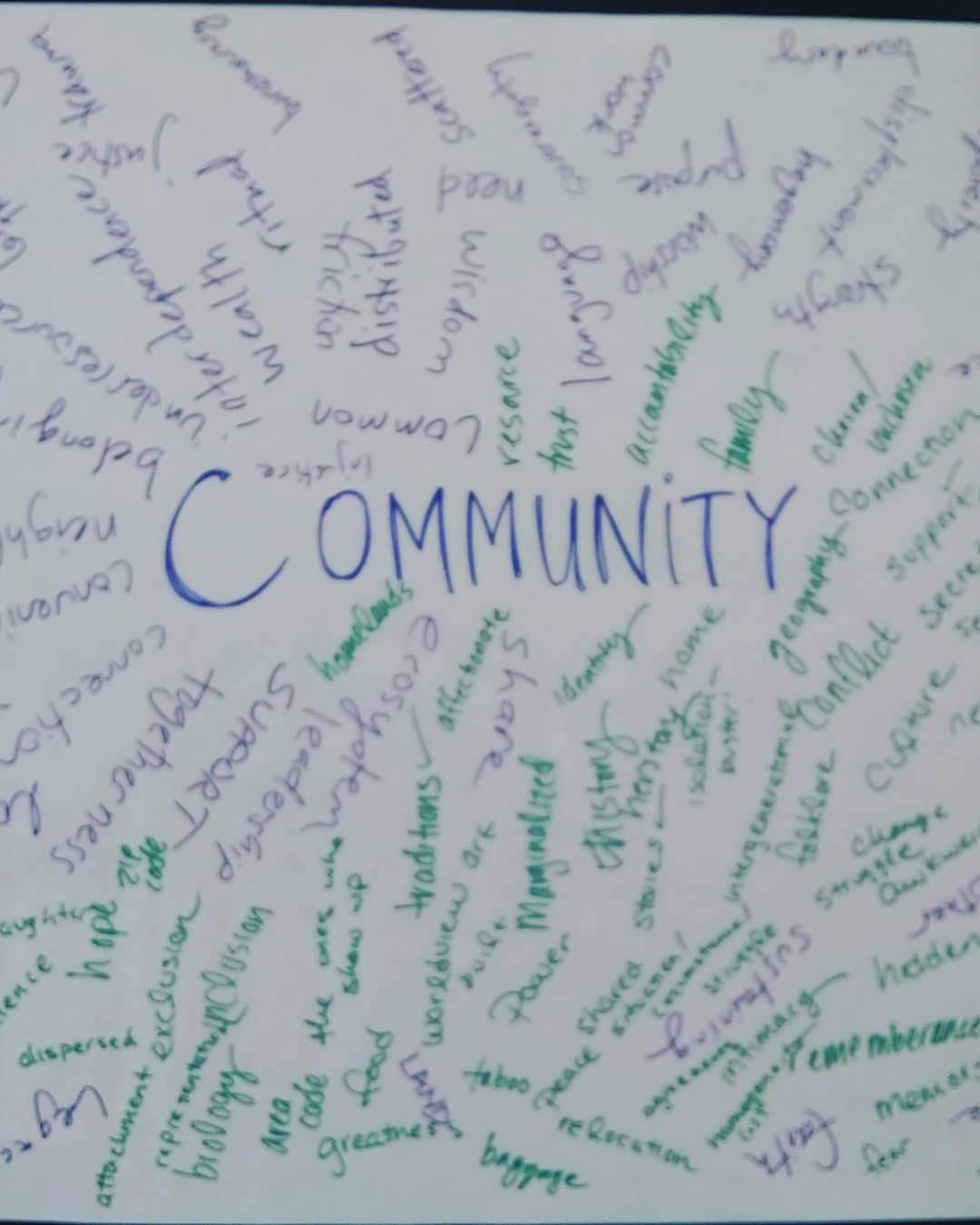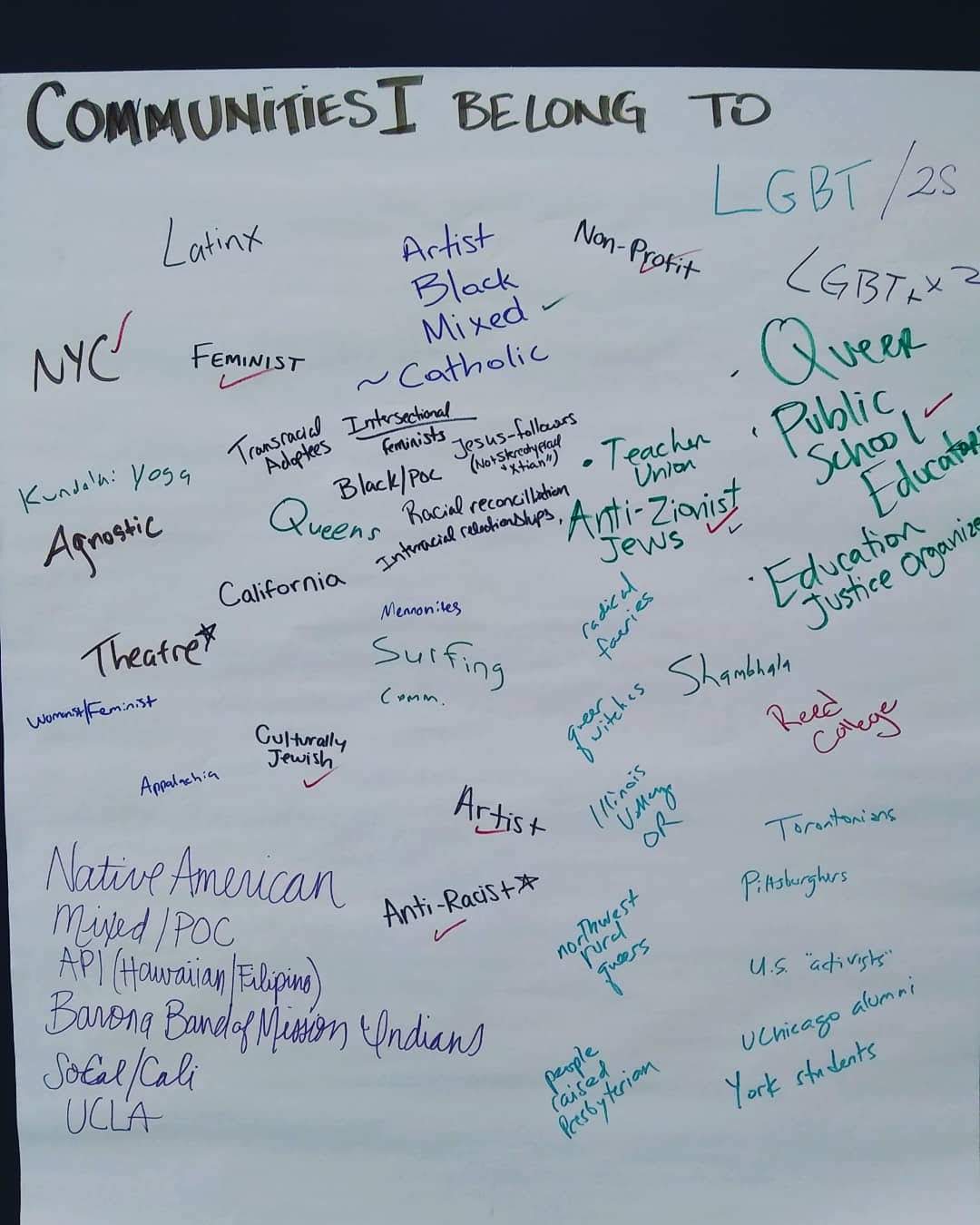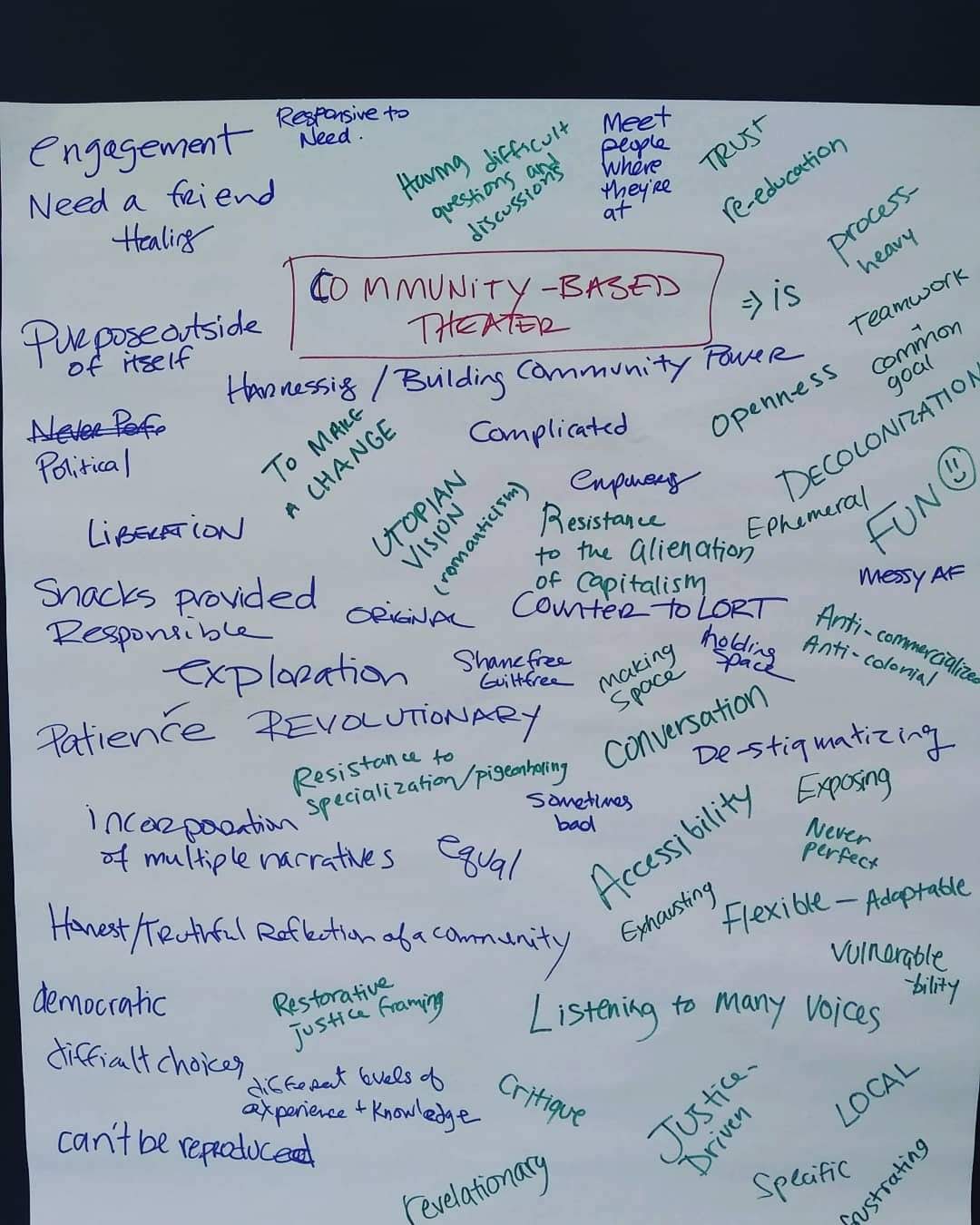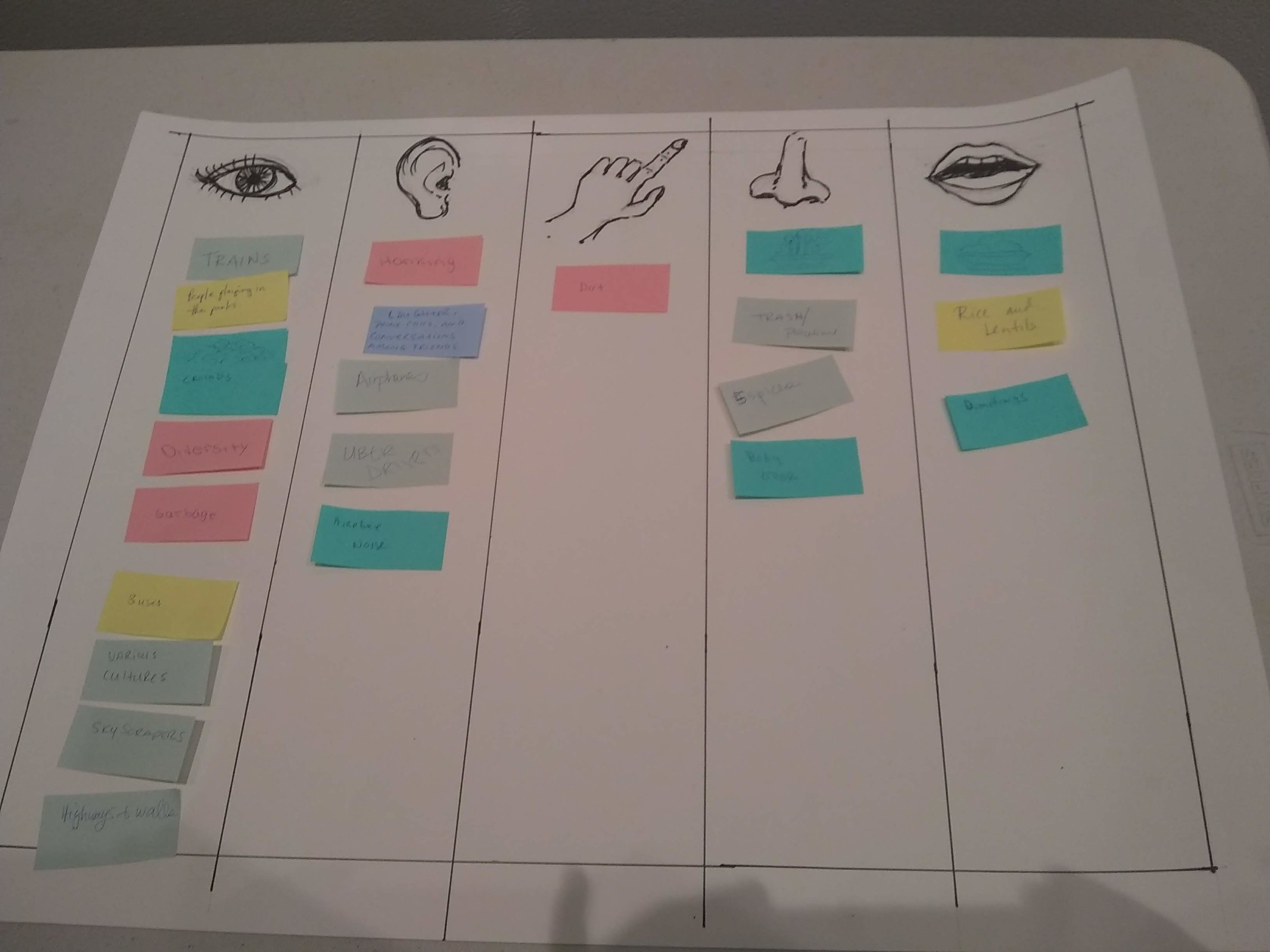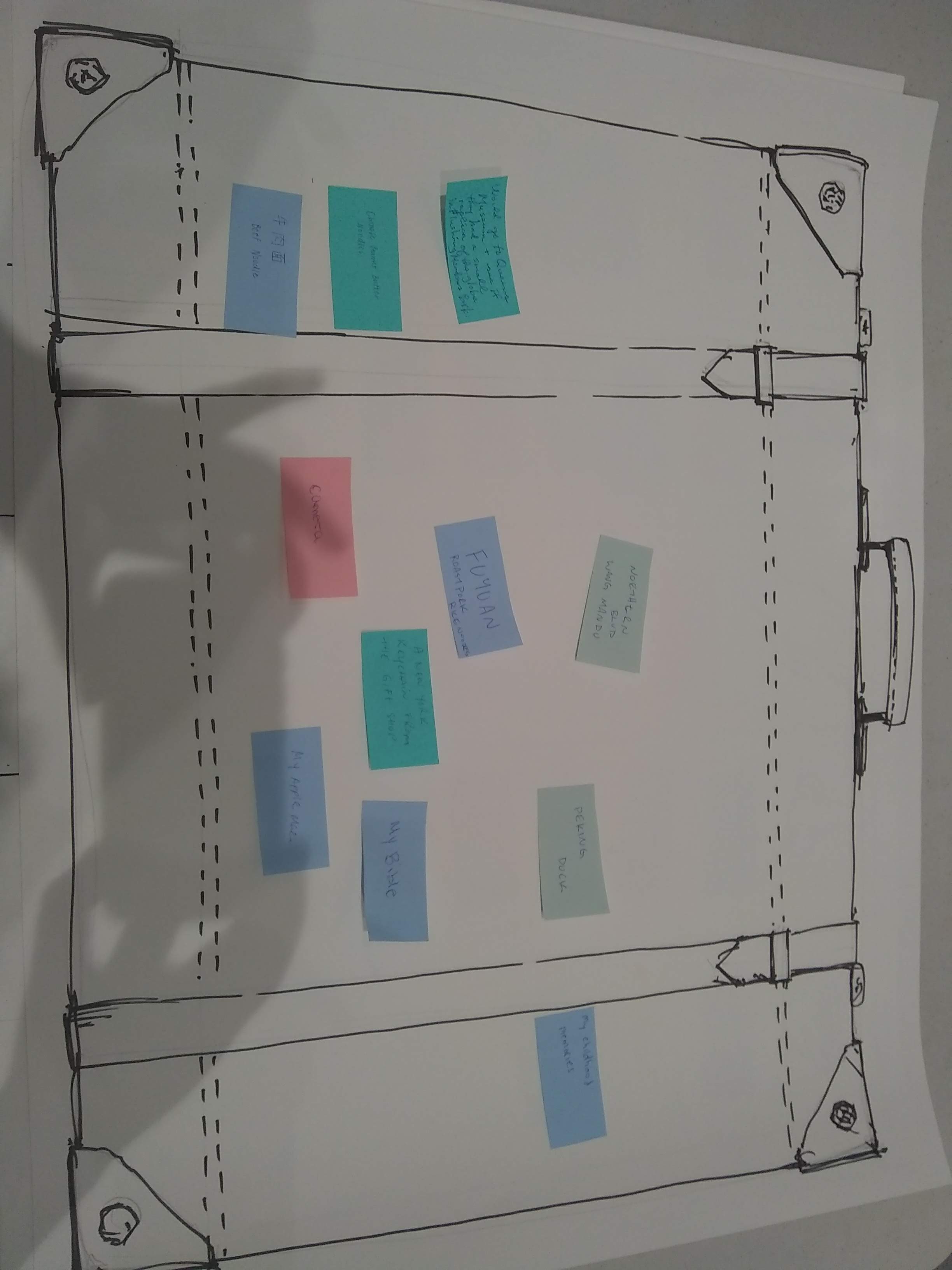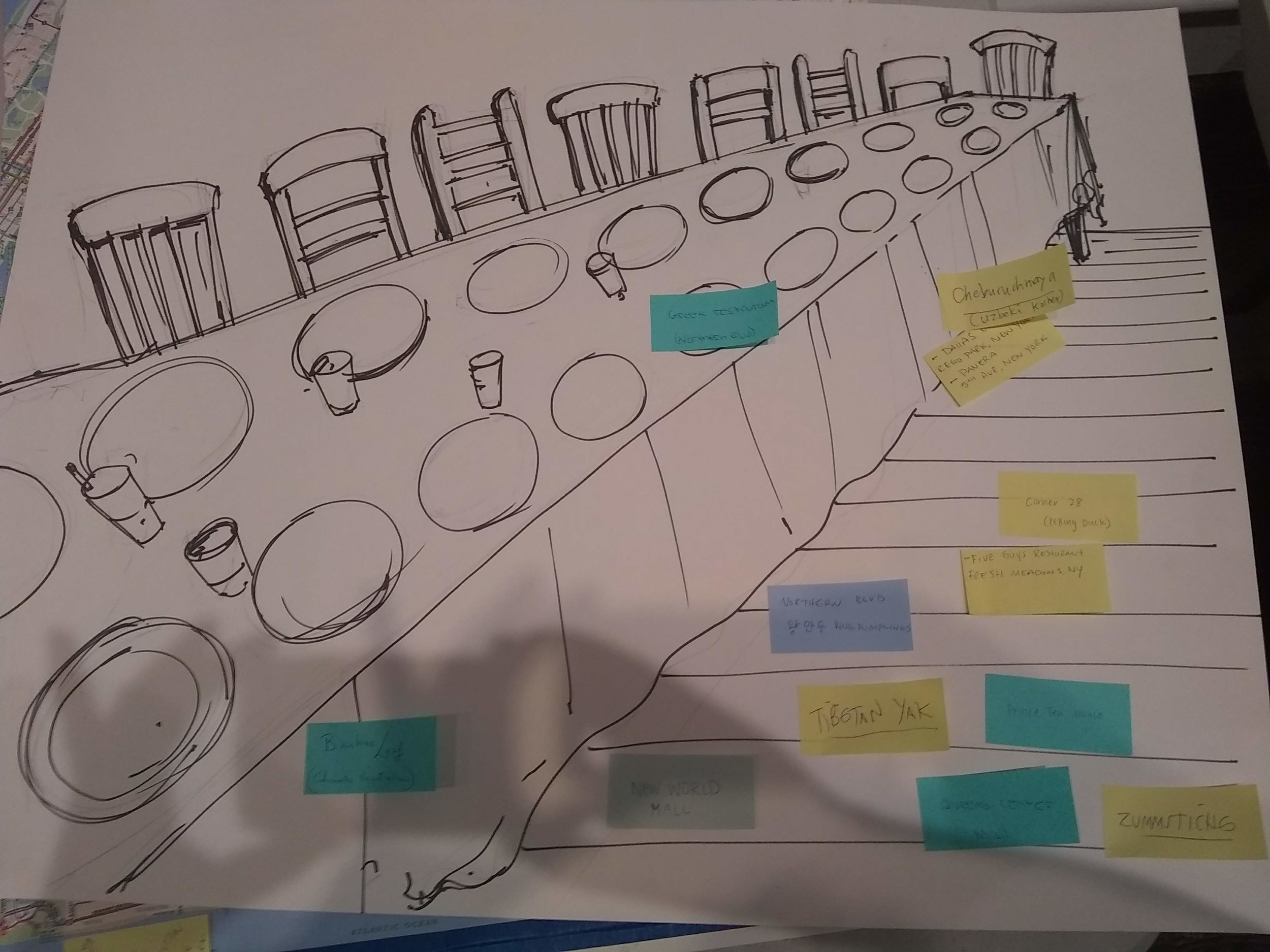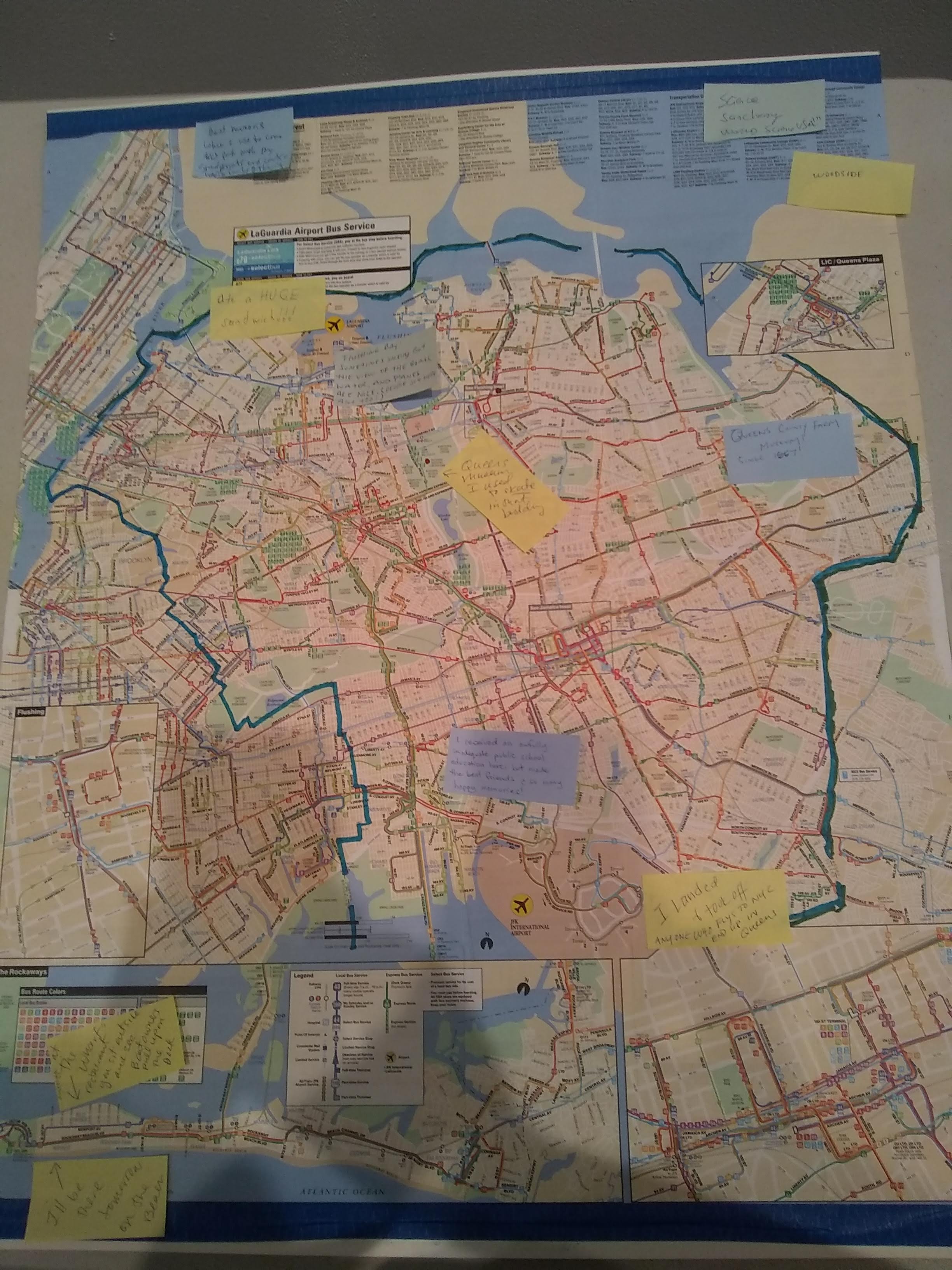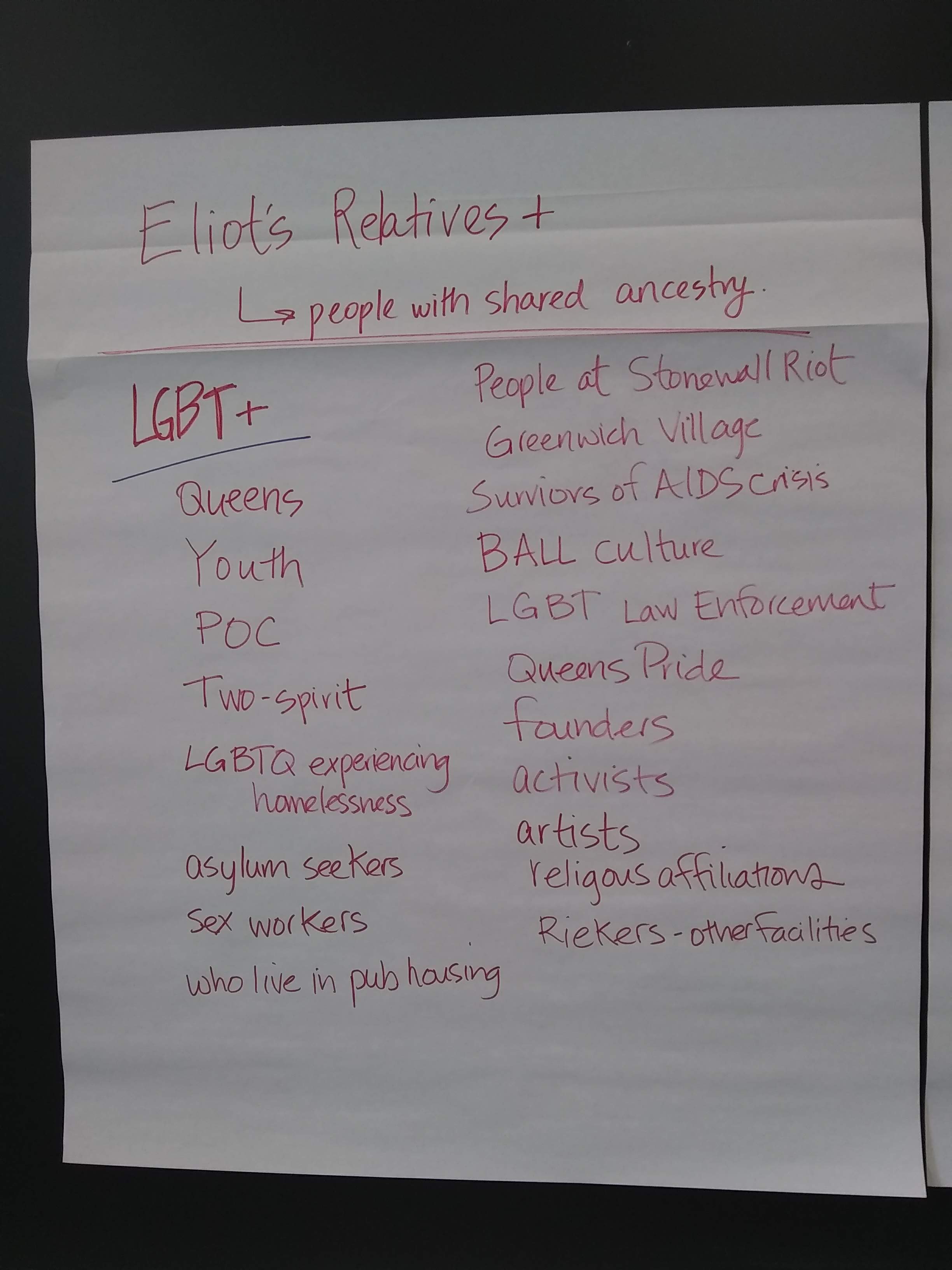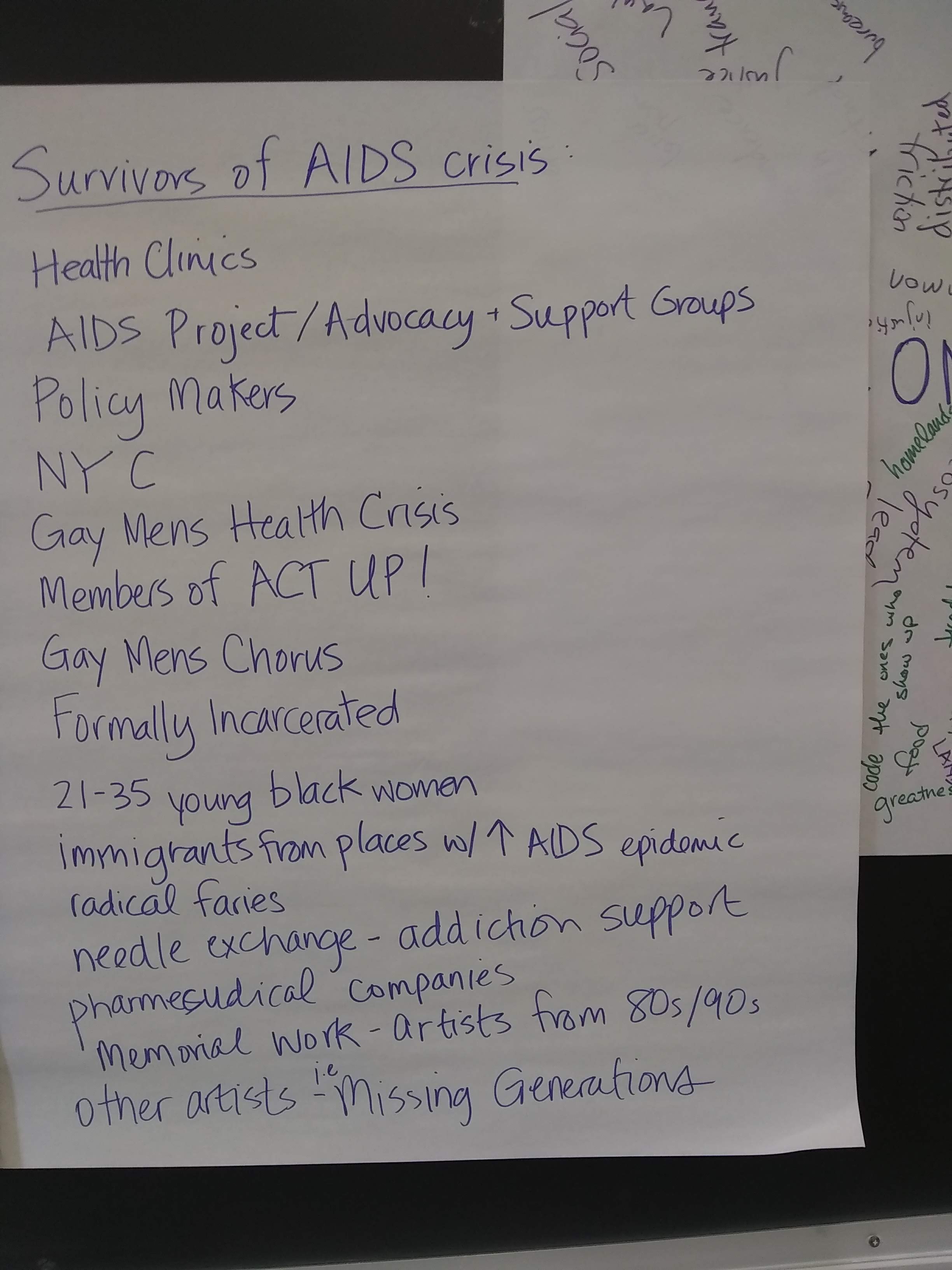[[Article by BroadwayWorld on our project here: https://www.broadwayworld.com/los-angeles/article/Cornerstone-Theater-Co-To-Present-The-Premiere-Of-UTOPIA-PARKWAY-20180716)
One week ago I woke up at Letchworth State Park and drove down through Margaretsville and Bloomfield to here, to Queens; and my phone died just as I was getting on some highway or another into NYC but instead of pulling over, I had scrawled out some directions as I was sitting in bumper-to-bumper (took me a few days, but I just realized that these funny-looking things people have on their car bumpers are most assuredly for bumping into other cars!). That feels like a very long time ago in some way; and in another, I know that when this ends, it might feel like I blinked and it happened. That was something I was really thinking about yesterday—the familiarity and sadness of theatre projects not lasting forever, that it’s a community coming together for just a bit of time to make something and then let it go, and that will be sad. (And...we're still at the beginning of this project!)
I’m reminded of this Elizabeth Bishop poem, “One Art,” that I encountered while staying at my aunt’s house and then again when Jose Munoz includes it in Cruising Utopia:
Lose something every day. Accept the fluster
of lost door keys, the hour badly spent.
The art of losing isn’t hard to master.
Then practice losing farther, losing faster:
places, and names, and where it was you meant
to travel. None of these will bring disaster.
Maybe the ephemerality of most theatre projects is a kind of practice of attachment and release. Meeting all the folks auditioning in these past three days, and getting to know the ensemble and institute participants over the past week, I feel already so in love with this group, these people, this work—and we haven’t even started rehearsing yet. In fact, the play isn’t written yet! (I don’t envy the playwright’s position in all this…seems like a tough job.)
Well, so to kind of lay it out, there are 13ish of us participating in the Institute—from all over the country—and then there’s a bunch of folks from the Cornerstone Ensemble and staff here, which is based in LA, plus a few family members (Sage’s wife Julia and their daughter Mira, who’s 1 ½ and totally a joy to hang out with), plus a few key collaborators who aren’t ensemble members but have a history of working with the company—including the playwright, Cusi Cram, director Juliette Carrillo, choreographer Edisa Weeks, and composer Emily Gardner Xu Hall. We all came in with assigned roles—I’m going to be a performer/musician; there’s also Institute participants working on stage management, assistant directing, community outreach, etc. And there’s a good degree of flexibility (seems to be one of Cornerstone’s strong points) so that people step up and back with their energy, skills and talents, etc.
We’ve started by holding story circles, where a facilitator leads the group in some step-forward-step-back type exercises and then invites responses to questions on a range of topics (some times more short answer, sometimes longer stories). We’ve organized and held story circles at a number of spots in Flushing, the neighborhood near Queens College—at Flushing Town Hall, at the College, at the Pomonok Community Center across the street, and next week at the Y nearby. (These also serve as a good way to invite community partners to share their space/reach out to people who tend to use a particular space but would be unlikely to come to an unknown/farther space without really connecting to the project first; and to put on an event that is lovely even as a one-time thing for the people present! Of course also it’s about getting input and hearing stories…) Almost parallel with those, we’ve been hosting auditions for community members. The first day, Institute participants all auditioned; and since then we’ve been very actively canvassing for people who are interested in participating in this community play project! Or really any way of getting involved. Kenny, one of the Institute participants, has been great at this kind of canvassing and totally inspiring to me; I’ve been much more reticent about it and prefer to reach out via email/calling/social media to friends and friends of friends and hope that will work out, though often on a short timeline, it’s too short notice. Really reaching out to the people who live right here makes a lot of sense, too; it’s not going to be a long commute!
Well, with that said, there’s been a mix of strategies for getting people engaged so far, including: Nephalie has been visiting for the past 3-5 months and connecting with a few community partner organizations, CERRU (Center for Ethnic, Religious, and Racial Understanding) and the director of the Pomonok Community Center; straight-up street canvassing; reaching out to friends and colleagues in Queens and beyond and asking ‘who should we know?’; connections through Queens College; and then really following through on old and new threads and possible connections—showing up at their events/church services, seeing what might be possible and really thinking through what kinds of barriers to access might be invisibly present.
One kind of highlight in this community engagement work for me was going to the Unitarian Universalist fellowship on Sunday; I started going occasionally to UU services in Grants Pass and found it to be a welcome support during a difficult period; when I’m in Toronto, I’ve joined a fellowship there; and I know UU folks are often into community work and engagement. Two other Cornerstone folks joined me (one of whom had never been to a church—though I assured her that this wasn’t really church, either) and when we arrived we were surprised to find that the service was about 7 people sitting in a circle in the building’s basement! I guess the summer sessions are usually more informal. We joined in, sang a cappella, and read and discussed a story about the difference between helping, fixing, and serving (which felt very a propos to our work here). Anyway, out of the 7ish people there, 5 of them ended up coming to the story circle that evening and 3 came to auditions! Pretty good turnout.
Here are some questions/thoughts that came out of our class on community engagement yesterday:
- Early Cornerstone method for finding community to work with involved cold-calling with phonebook! Calling a town’s police dept and city hall to see if they were interested in hosting artists for a 3 month residency/play-making process.
- Cornerstone works in cycles and series exploring a theme/question for several years and making many shows with multiple communities (ex. The Hunger Cycle, The Justice Cycle, The Watts Cycle, The Change Series (current))
- Who’s your audience?
- “Not hitting it right on the nose”—in identifying a community (ex. pot growers in California), might be useful or getting more to what’s true to get more specific (ex. families that are pot growers, veterans who are pot growers, etc.)…this is also about checking assumptions.
- What if people/a community doesn’t want to talk?
- How is a project useful to a collaborator/partner/co-sponsor organization? What’s in it for them?
- Possible reasons to partner might include sharing resources (mailing list, space), resources/advice/insider knowledge
- Is it possible to have too many partnerships? (This is really about capacity and managing/being realistic about expectations. It’s nice to be transparent along the way about what’s known and unknown.)
- ‘Neutral’ vs. ‘not-neutral’ spaces (most spaces, if not all, aren’t neutral—or, a space may be neutral for one person or group but not another…ex. Queens College is not a neutral space)
- Having expectation of partner organization is important! – why we want to do this, what we can bring to your work, what you could offer to this work
- What’s our responsibility to partner organizations?
- What happens after the show?
- Cornerstone does a ‘cast reunion’ potluck 3 months after the show to watch a video of the show…I love this idea.
- For a few shows they’ve also done an ‘audience reunion’ to kind of hand the audience’s interest in the show back to community partners—lots of activity, dialogue, opportunity to get people signed up…
- Often it’s really individual relationships that continue and there’s been varying experiences/skills with how to ‘pass along’ those individual relationships to a relationship with the ensemble/work as a whole. Generally if folks from past projects come to a future show in another community it’s so so important that they’re recognized, that you make time to see and connect with them.
- A few residency projects seeded theatre companies that exist in those communities now!
- And also Cornerstone does these ‘bridge shows’ where at the end of a cycle they do a show that invites in participants from all the past shows of that cycle and tours to each of the communities they worked in over that cycle—so that’s another way that people get looped back in.
One story from this that I find totally lovely is from Cornerstone’s early rural residency travelling days—one community they worked in/with was Eastport, Maine and at that time, Cornerstone would leave $500 of box office money in that place to seed a theatre company’s forming. Well, that took off in Eastport and at that theatre company’s 10-year anniversary, they sent a $500 check back to Cornerstone with a note that said “Thanks for the loan.”
Also, an exercise that we did that I found really helpful was choosing one of the "communities I'd like to work with"--LGBTQ+ people in Queens/NYC--and then brainstorming more specific organizations/groups that one might consider working with or connecting with for a project--such as [former] ACT UP members and activists/artists from the AIDS epidemic movements, LGBTQ+ youth, LGBTQ+ POC, two-spirit folks, folks from ball culture, people who sought asylum because of LGBTQ status, sex workers, people who live in public housing, people who were at the Stonewall Riot in NYC, LGBTQ law enforcement, founders of Queens Pride, LGBTQ people in Rykers, etc. (This list is included in the photo gallery below.)
Also it feels important to say a bit about where I am--we're all living in the on-campus housing at Queens College, which is in the Flushing neighborhood. To the west and south seem like Orthodox Jewish neighborhoods--lots of yarmulkes and babies--and up Main/Kissena into 'downtown' Flushing is a mix of Korean and Chinese communities. I walked up there the other day and saw so many new foods that I'd never seen or heard of before. The 7 train, which is now legendary from these story circles though I haven't ridden it yet, runs up to that downtown Flushing area. Queens is the most diverse borough, in the most diverse city in the US--so that's really coming through strongly in peoples' stories and discussions about what they're proud about--this area between QC and the Flushing Main subway station is sometimes called "the world" because of the really dense concentration of different languages and cultures. For me, as someone who grew up in a predominantly white community and went to a predominantly white public school and then lived in predominantly white rural farming communities, I'm just really noticing and soaking up and trying to imagine what it would have been like to grow up here--the kind of education, curiosity, familiarity, and relationships that emerge from this place.
That’s all for now. Today we have a class on story circles; our first rehearsal is Saturday so I anticipate these next few days will be a lot of work for Cusi on the play and more classes for us. I’ll attach a few photos of worksheets and some photos of our process and feel free to get in touch if you have particular questions!
Another thought is that if you are a community-engaged artist or are interested in working more in these ways or if you just are interested in Cornerstone/being here and have some questions, I'd be happy to bring your questions to this crew of interested and experienced minds that have gathered! Feel free to be in touch.
